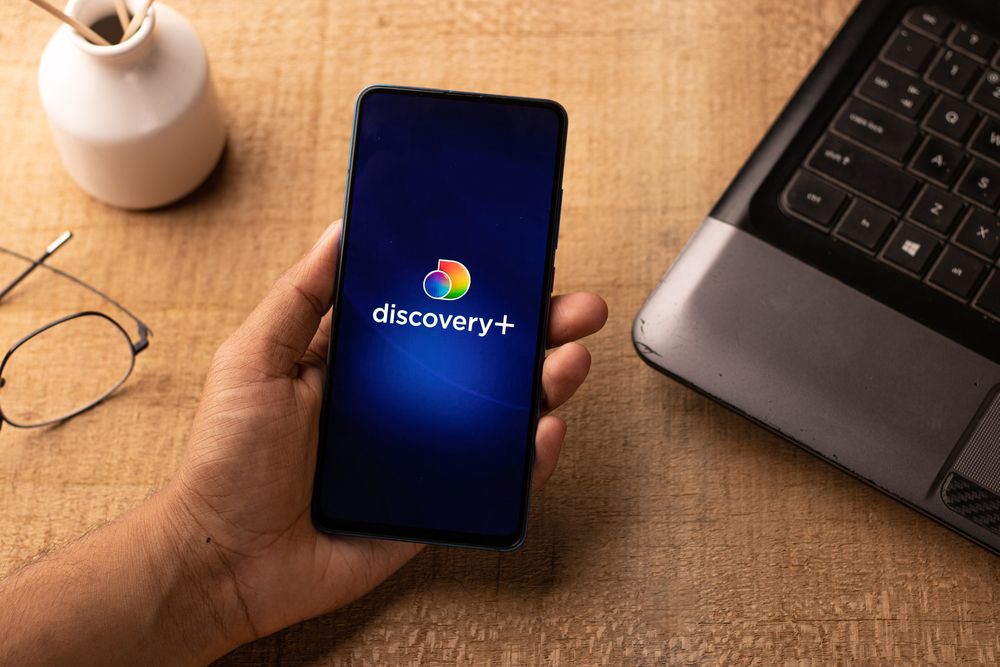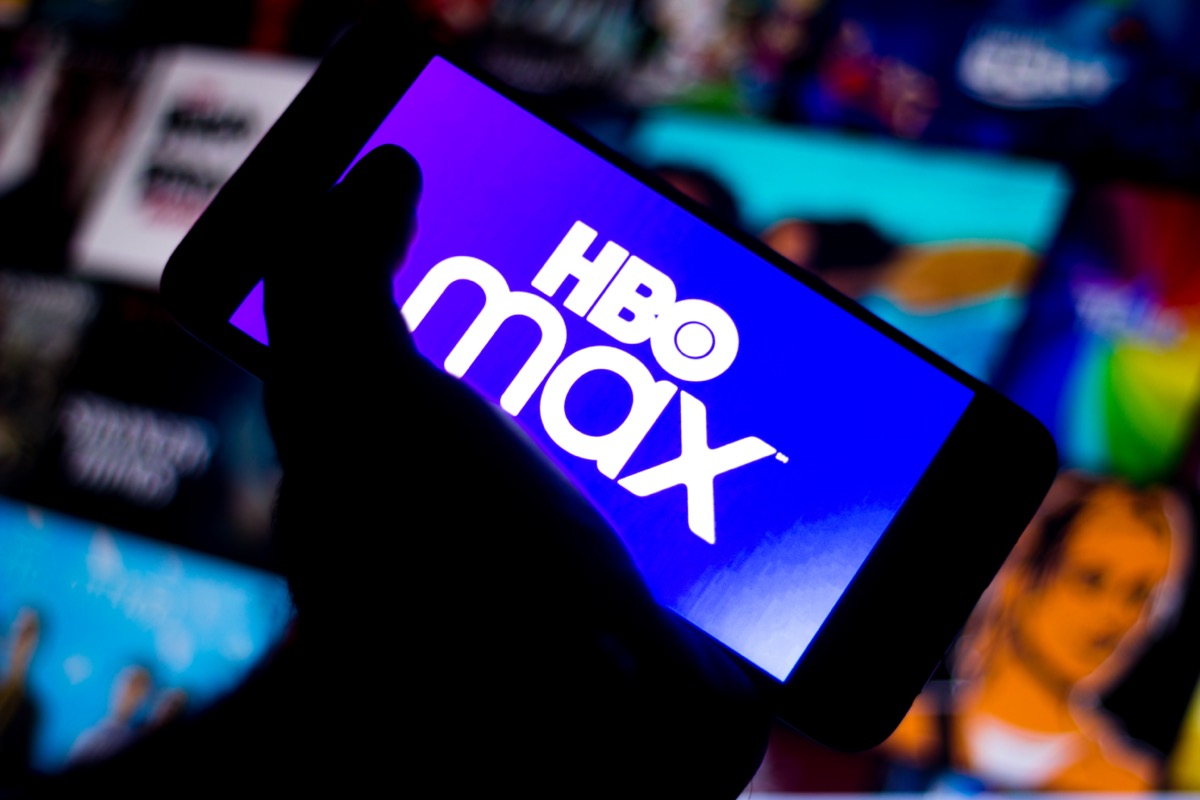You Could Lose This Streaming Service After a Major Merger

The world of streaming services has come a long way in the few short years since ditching traditional cable became popular. The market once dominated by a handful of platforms has exploded with dozens of subscription options, including some that carry special interest programming and shows from legacy networks. But as the on-demand TV industry continues to shift and grow, one popular streaming service could be disappearing from your list of options in the near future. Read on to see which major merger could mean you’re losing one of your go-to binge-watching options.
RELATED: If You Have This TV Provider, Prepare to Lose These Popular Shows.
The Discovery+ streaming app could be disappearing after a recent merger with HBO Max.

During a conference on March 14, a company executive announced that streaming services Discovery+ and HBO Max would likely be bundled into a single service after respective parent companies AT&T and WarnerMedia complete their merger, The Wall Street Journal reports. The changes, which will likely come immediately when the deal closes as early as next month, would likely see the two popular products combined as the standalone services are eventually discontinued, according to Discovery Chief Financial Officer Gunnar Wiedenfels.
“So right out of the gate, we’re working on getting the bundling approach ready, maybe a single sign-on, maybe ingesting content sort of into the other product, etc., so that we can start to get some benefits early on,” Wiedenfels said. “But the main thrust is going to be harmonizing the technology platform, building one very, very strong combined direct-to-consumer product and platform, and that’s going to take a while.”
The merger will bring together a score of popular channels and film content under one streaming service.

Although no specifics on the final streaming product were discussed, completing the $43 billion merger will create one of the largest media companies in the U.S., The Verge reports. The deal will see WarnerMedia properties HBO and its streaming component HBO Max, CNN, DC Films, TBS, TNT, TruTV, Cartoon Network and its specialized Adult Swim programming, Turner Sports, and film and TV properties from Warner Bros. Studios brought together with popular Discovery-owned channels such as HGTV, Discovery Channel, Discovery+, Food Network, TLC, ID, Travel Channel, Animal Planet, Science Channel, and OWN under one newly created company, Warner Bros. Discovery.
“We have HBO Max with a more premium male-skewing positioning, and then you’ve got the female positioning on the Discovery side,” Wiedenfels said. “You’ve got the daily engagement that people enjoy with Discovery content versus sort of the event-driven nature of the HBO Max content. Take that together, I have no doubt that we will be creating one of the most complete sort of four-quadrant sort of old, young male, female product out there.”
RELATED: For more up-to-date information, sign up for our daily newsletter.
There were no details on how much the new bundled app might cost.

Wiedenfels made it clear the company was exploring different subscription options for the new app, including a premium tier without ads and a less expensive ad-lite option similar. But beyond that, he gave no details on what the final price would be once the streaming services are combined.
Currently, HBO Max offers ad-supported and ad-free subscription tiers for $9.99 and $14.99 a month, respectively. Discovery+ provides the same set of options, charging $4.99 a month for its ad-supported tier and $6.99 to stream without commercials. In comparison, Netflix subscriptions run from $9.99 to $19.99 a month depending on streaming quality and the number of allowed screens, according to The Verge.
Some experts hoped the move would improve the quality of the notoriously unreliable HBO Max app.

Although the merger will provide an abundance of TV and film options for subscribers when the streaming services become one, some argued that the infamously unreliable technology behind them could also stand to see an upgrade in the process. “Despite being a service I watch every dang day, HBO Max is buggy as [expletive],” Alex Cranz, Managing Editor at The Verge, writes. “Frequently, at least on the Apple TV, you have to restart the app if you try to navigate directly to a show from Apple’s Up Next feature. Other times, just choosing a show to watch in the app directly will lead to a restart or crash. And if you want to watch something as soon as it airs, good luck.”
“Yes, the merging of content will be super appealing, but not if people can’t watch it because the app is buggy,” Cranz concludes.
RELATED: If You Have DirecTV, You’ll Lose These Channels in April.